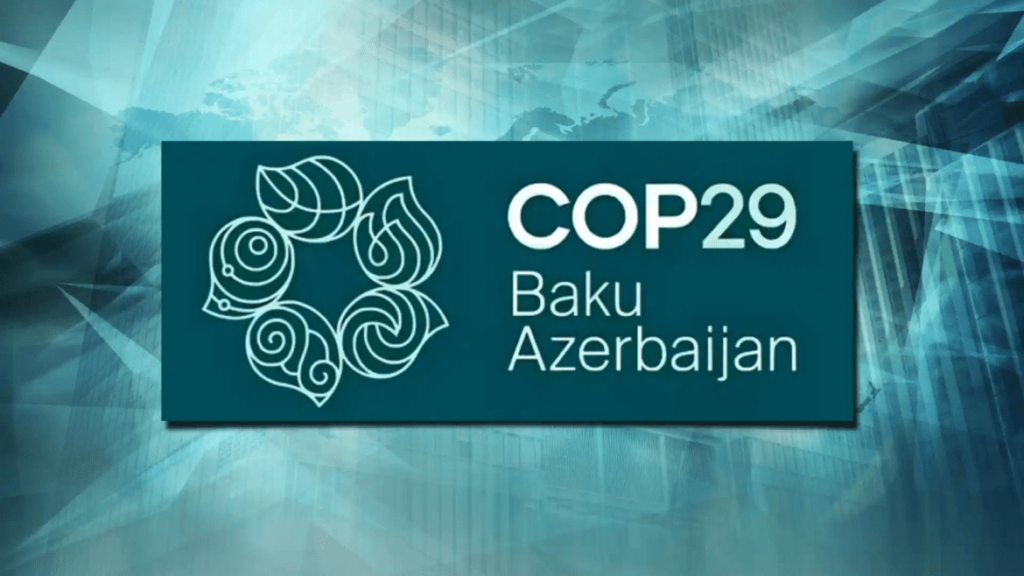- Parties reach consensus on standards for the creation of carbon credits under Article 6.4 of the Paris Agreement, in sign of early momentum.
- COP29 President opens summit with plan to enhance ambition and enable action.
- COP29 will “test our commitment to the multilateral climate system” upon end of the first decade after the Paris Agreement.
- COP29 top negotiating priority is a new climate finance goal.
- Realistic goal for what the public sector can directly provide and mobilise seems to be in the “hundreds of billions”.
11 November, 2024, Baku: Today, Parties assembled for the first day of the UN Climate Change Conference achieved a critical early success by reaching consensus on standards for the creation of carbon credits under Article 6.4 of the Paris Agreement. This will enable climate action by increasing demand for carbon credits and ensure that the international carbon market operates with integrity under the supervision of the United Nations.
Commenting on the outcome, COP29 President Mukhtar Babayev said, “This will be a game-changing tool to direct resources to the developing world. Following years of stalemate, the breakthroughs in Baku have now begun. But there is much more to deliver.”
The COP29 Presidency identified the full operationalization of Article 6 as a key negotiating priority this year. Finalising Article 6 negotiations could reduce the cost of implementing national climate plans by $250 billion per year by enabling cooperation across borders. Today’s decision is an essential step in achieving that goal and establishes strong momentum for continued progress over the coming two weeks of negotiations.
The COP29 President opened the summit by setting clear expectations for how global leaders must enhance ambition and enable action during the conference. COP29 is a critical moment for global leaders to come together and demonstrate their collective commitment to climate action. The summit runs from 11-22 November in Baku, Azerbaijan, and approximately 70,000 delegates are registered to attend, including heads of state and government who will participate in the leaders’ segment on 12-13 November.
In his opening address Mr. Babayev highlighted how current policies put the world on track for catastrophic warming of 3 degrees Celsius, citing the latest UNEP Emissions Gap Report. “We are on a road to ruin,” he told delegates. “Whether you see them or not, people are suffering in the shadows. They are dying in the dark. And they need more than compassion, more than prayers and paperwork. They are crying out for leadership and action. COP29 is the unmissable moment that can chart a new path forward for everyone.”
To enable action, Mr. Babayev identified agreement on a fair and ambitious New Collective Quantified Goal (NCQG) on climate finance as the top negotiating priority for COP29. He noted progress on structure, access features, transparency arrangements and timeframe, while acknowledging remaining differences on contributors and the size of the final goal.
“We know the needs are in the trillions,” Mr. Babayev said, while acknowledging differences on how to get there. He also noted that a realistic goal for what the public sector can directly provide and mobilise seems to be in the “hundreds of billions”. Acknowledging the scale of the challenge, he said: “These numbers may sound big, but they are nothing compared to the cost of inaction. These investments pay off.”
UN Climate Change Executive Secretary Simon Stiell also emphasized the importance of reaching a new global climate finance goal in Baku. “If at least two thirds of the world’s nations cannot afford to cut emissions quickly, then every nation pays a brutal price,” he said. “So, let’s dispense with any idea that climate finance is charity. An ambitious new climate finance goal is entirely in the self-interest of every nation, including the largest and wealthiest.”
To enhance ambition, the COP29 President called for countries to submit 1.5-aligned Nationally Determined Contributions to reduce emissions ahead of next year’s deadline, submit National Adaptation Plans by 2025 to prepare for a warming world, and deliver their first Biennial Transparency Reports (BTR) this year.
Mr. Babayev made a strong call to action on emissions reductions, noting that “as the world’s highest forum on climate change, COP29 cannot and will not be silent on mitigation.” He announced the publication of the summary of the COP29-International Energy Agency high-level dialogues, with its calls to action to achieve a just and orderly transition. “We have put mitigation on the agenda at all meetings ahead of COP so that we can find a way forward,” he said. “As a Presidency we are making every effort to attack the problem in every direction, without losing focus on our top negotiating priority – the NCQG.”
Concluding his remarks, Mr. Babayev stressed that as the first Paris decade comes to a close, COP29 is a “moment of truth” that “will test our commitment to the multilateral climate system. We must now demonstrate that we are prepared to meet the goals we have set ourselves.” Describing climate action as the “race of our lives”, he acknowledged the difficulty of the task ahead, but noted that “we wouldn’t be setting these expectations unless we believed they were absolutely necessary.”
While highlighting how Azerbaijan was rising to the challenge of hosting the talks, Mr. Babayev noted that success would depend on everyone playing their part. “Azerbaijan can build the bridge,” he said, “but you all need to walk across it. In fact, you need to start running.”



